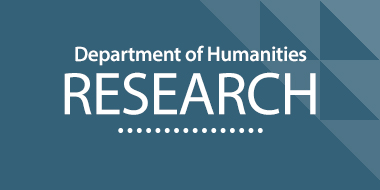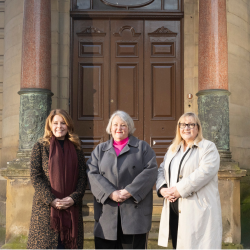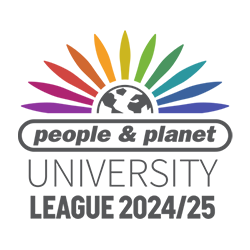-
Study
-
Undergraduate
- Search for a Course
- Undergraduate Open Day & Events
- Application Guides
- Northumbria University UCAS Exhibitions
- Foundation Years
- Undergraduate Fees & Funding
- School & College Outreach
- Continuing Professional Development
-
Postgraduate
- Postgraduate Study Degree
- Postgraduate Research Degrees
- Postgraduate Open Days and Events
- Postgraduate Fees & Funding
- Flexible Learning
- Thinking about a Masters?
- Continuing Professional Development
- Change Direction
-
Student Life
- The Hub - Student Blog
- Accommodation
- Life in Newcastle
- Support for Students
- Careers
- Information for Parents
- Students' Union
- Northumbria Sport
- Be Part of It
-
-
International
International
Northumbria’s global footprint touches every continent across the world, through our global partnerships across 17 institutions in 10 countries, to our 277,000 strong alumni community and 150 recruitment partners – we prepare our students for the challenges of tomorrow. Discover more about how to join Northumbria’s global family or our partnerships.
View our Global Footprint-
Applying to Northumbria
- European Union
- Our London Campus
- Northumbria Pathway
- International Events
- Entry Requirement and Education Country Agents
- Global Offices
-
Northumbria Language Centre
- Faculty Requirements
- Acceptable English Requirements
- Pre-sessional English Language and Study Skills
- Academic Language Skills Programmes (ALS)
-
International Fees, Funding & Scholarships
- International Undergraduate Fees
- International Undergraduate Funding
- International Masters Fees
- International Masters Funding
- International Postgraduate Research Fees
- International Postgraduate Research Funding
- International Money Matters
-
Life at Northumbria
- International student support
- Careers
-
International Mobility
- Current Northumbria Students
- Incoming Exchange Students
-
-
Business
Business
The world is changing faster than ever before. The future is there to be won by organisations who find ways to turn today's possibilities into tomorrows competitive edge. In a connected world, collaboration can be the key to success.
More on our Business Services -
Research
Research
Northumbria is a research-rich, business-focused, professional university with a global reputation for academic quality. We conduct ground-breaking research that is responsive to the science & technology, health & well being, economic and social and arts & cultural needs for the communities
Discover more about our Research -
About Us
-
About Northumbria
- Our Strategy
- Our Staff
- Place and Partnerships
- Student Profiles
- Alumni Profiles
- Leadership & Governance
- Academic Departments
- University Services
- History of Northumbria
- Contact us
- Online Shop
-
-
Alumni
Alumni
Northumbria University is renowned for the calibre of its business-ready graduates. Our alumni network has over 246,000 graduates based in 178 countries worldwide in a range of sectors, our alumni are making a real impact on the world.
Our Alumni - Work For Us
What will I learn on this module?
The module will focus on the televisual representation and articulation of cultural identities in Britain and the US. We will look at how gender, ethnicity, national and regional identities are constructed through an examination of different genres and areas of screen media, such as drama, comedy and current affairs. We will explore issues such as class, gender and racial stereotypes, visibility of minority groups and integration. Throughout the course we will also consider the function of television, considering what its role might be in the construction of cultural identities.
How will I learn on this module?
The module is taught by weekly two-hour lectures and one-hour seminars . The lectures introduce you to key ideas relating to the representation of cultural identity in screen media, and the role such media plays in the construction of cultural identity. Each class will relate to a particular aspect of screen representation, and is designed to develop your understanding of key theoretical approaches to the representation of cultural identity. The seminars will involve student-led discussion of, and thus critical engagement with, the theoretical and generic issues raised in the class. You are expected to prepare for classes by studying the set texts for each week as well as undertaking additional recommended reading and/or viewing. The information on required and recommended reading/viewing can be found in the module guide and on the e-Learning Portal; set texts will be accessible via an e-reading list. Class discussions are also intended to develop your communication skills and your ability to develop and respond to ideas in a collaborative environment. Tutorials are used to assist you in the preparation of your essay.
How will I be supported academically on this module?
Seminars will involve group discussions with the tutor and fellow students, providing a constructive environment for the enhancement of knowledge and understanding of the subject, preparation for the assessment tasks, and the development of communication skills. Class material (such as Powerpoint slides, links to clips and discussion points) will be accessible via the e-Learning portal, along with supplementary learning material (which may include web links, suggestions for further viewing and reading). A list of key and further reading material will be available on the eLP, and an electronic reading list will link you directly to key sources, allowing you to access them anytime and anywhere. The module will also incorporate assessment preparation sessions, with advice on how to approach the essay component. Furthermore, the module tutor will offer set office hours for academic support
What will I be expected to read on this module?
All modules at Northumbria include a range of reading materials that students are expected to engage with. Online reading lists (provided after enrolment) give you access to your reading material for your modules. The Library works in partnership with your module tutors to ensure you have access to the material that you need.
What will I be expected to achieve?
Knowledge & Understanding:
• An understanding of the key approaches to screen representation of cultural identities
• An ability to contextualise examples of screen media in terms of their relation with discourses around cultural identity
Intellectual / Professional skills & abilities:
• An ability to articulate, evaluate and apply theoretical and critical approaches to screen representation
• Demonstration of analytical and communication abilities through verbal and written means
Personal Values Attributes (Global / Cultural awareness, Ethics, Curiosity) (PVA):
• An appreciation of the global and cultural contexts of television production
How will I be assessed?
The assessment strategy for this module is to encourage you to develop a critically and contextually informed understanding of how screen media represents and constructs notions of cultural identity, and to communicate this clearly in written form. The assessment task is an essay of 3000 words which requires you to choose from a list of questions.
It addresses all of the MLOs relating to knowledge/understanding and intellectual/professional skills, in testing: an understanding of key approaches to the subject; an ability to contextualise specific examples; an ability to articulate, evaluate and apply theoretical/critical ideas in relation to specific examples; and the communication of these abilities in written form. Generally, the essay tests your broad range of knowledge gained on the module relating to representation, cultural identities and television. Feedback will be given electronically.
Pre-requisite(s)
none
Co-requisite(s)
none
Module abstract
The module will focus on the representation and articulation of cultural identities across screen media, with an emphasis on television (broadly defined) . Via a range of case-studies from the beginnings of television to digital age (i.e. on-demand platforms) you will consider how, for example, gender, ethnicity, national and regional identities are constructed. You will explore issues such as class, gender and racial stereotypes, visibility of minority groups and integration. The module is taught via two-hour lectures and one-hour seminars. You are assessed by way of an essay that tests your broad range of knowledge gained on the module relating to representation, cultural identities and screen media.
Course info
UCAS Code T700
Credits 20
Level of Study Undergraduate
Mode of Study 3 years Full Time or 4 years with a placement (sandwich)/study abroad
Department Humanities
Location City Campus, Northumbria University
City Newcastle
Start September 2025
All information is accurate at the time of sharing.
Full time Courses are primarily delivered via on-campus face to face learning but could include elements of online learning. Most courses run as planned and as promoted on our website and via our marketing materials, but if there are any substantial changes (as determined by the Competition and Markets Authority) to a course or there is the potential that course may be withdrawn, we will notify all affected applicants as soon as possible with advice and guidance regarding their options. It is also important to be aware that optional modules listed on course pages may be subject to change depending on uptake numbers each year.
Contact time is subject to increase or decrease in line with possible restrictions imposed by the government or the University in the interest of maintaining the health and safety and wellbeing of students, staff, and visitors if this is deemed necessary in future.
Useful Links
Find out about our distinctive approach at
www.northumbria.ac.uk/exp
Admissions Terms and Conditions
northumbria.ac.uk/terms
Fees and Funding
northumbria.ac.uk/fees
Admissions Policy
northumbria.ac.uk/adpolicy
Admissions Complaints Policy
northumbria.ac.uk/complaints














